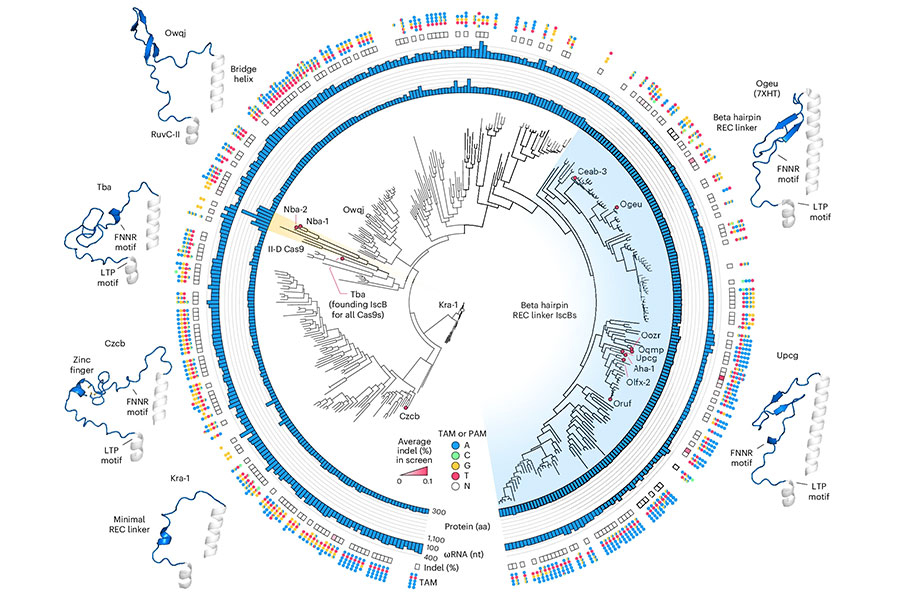Scientists at the McGovern Institute for Brain Research at MIT and the Broad Institute of MIT and Harvard have re-engineered a compact RNA-guided enzyme they found in bacteria into an efficient, programmable editor of human DNA.
The protein they created, called NovaIscB, can be adapted to make precise changes to the genetic code, modulate the activity of specific genes, or carry out other editing tasks. Because its small size simplifies delivery to cells, NovaIscB’s developers say it is a promising candidate for developing gene therapies to treat or prevent disease.
The study was led by Feng Zhang, the James and Patricia Poitras Professor of Neuroscience at MIT who is also an investigator at the McGovern Institute and the Howard Hughes Medical Institute, and a core member of the Broad Institute. Zhang and his team reported their open-access work this month in the journal Nature Biotechnology.

